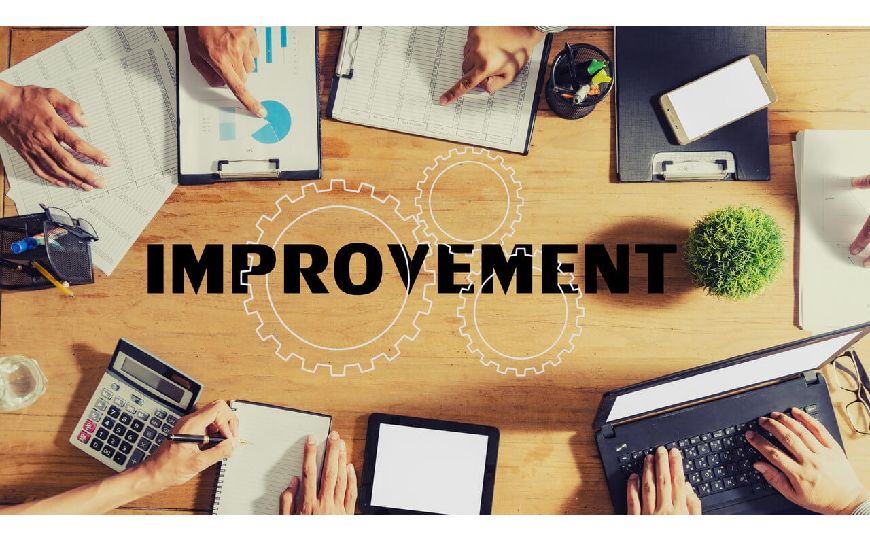Why Six Sigma is Important for an Organization
Lean and Six Sigma is valuable for every organization because it creates an environment of improvement, increased productivity and efficiency in a business looking for improvement. LSS gives everyone an opportunity to make improvements to traditional processes and apply updated skills.
Lean Six Sigma certified professional to create a disciplined and knowledge-based approach designed to enhance customer satisfaction and build a customer culture that embraces innovative approaches to technology and business development. In today's competitive world, LSS provides a highly structured strategy for acquiring, assessing and applying customer expectations with manageable solutions for the purposes of product, system or enterprise innovation and design.
Process Mapping or Flowcharting
LSS utilizes process mapping or flowcharting to document the current process or the steps within the system used to produce a product or service. This information includes employee performance in meeting customer goals and decision making factors. Then an organization can use these process mapping to come up with improvement suggestions to access the future state of a particular process.
DMAIC – (Define, Measure, Analyze, Improve and Control) is a process for continuous improvement. It is systematic, scientific and fact-based. This closed-loop process eliminates unproductive steps, often focuses on new measurements, and applies technology for improvement.
On to the DMAIC process!
Define: it does mean what you like to fix? The Define Phase is the first phase of the Six Sigma improvement process. In this phase, the leaders of the project create a Project Charter, create a high-level view of the process, and begin to understand the needs of the customers of the process.
Measure: How does the process currently perform? In the Measure step, the Project Team goes about collecting data on the problem and start to analyze, root cause style, what could be the potential causes.
Analyze: What does your data tell you? This phase is often intertwined with the Measure Phase. As data, the team may consist of different people who will collect different sets of data or additional data. As the team reviews the data collected during the Measure Phase, they may decide to adjust the data collection plan to include additional information. This continues as the team analyzes both the data and the process in an effort to narrow down and verify the root causes of waste and defects.
Improve: How will you fix the problem? It’s time to move on to solution development. The team is most likely collecting improvement ideas throughout the project, but a structured improvement effort can lead to innovative and elegant solutions.
Control: How do you sustain the newly achieved improvement? This phase is a mini version of process management. The team has been building a form of infrastructure throughout the life of the project, and during the Control Phase, they begin to document exactly how they want to pass that structure on to the employees who work within the process.
Continuous Improvement Environment
Employees who are trained in Lean and Six Sigma processes are able to identify problem areas that slow down production or the ability to perform assigned tasks. Employees are able to visualize how processes are currently being completed and identify improvement ideas continuously. Continuous improvement helps to improve existing products and processes, develop new products and processes that ultimately provide financial savings through improved efficiency and effectiveness. For example, if product failure is because of a faulty system that has been identified, then Six Sigma principles will allow the employee to implement solutions based on the root causes discovered through troubleshooting.
Different type of LSS levels
The Lean Six Sigma Master Black Belt--described as a mentor, trainer, and coach of Black Belts and others in the organization.
The Lean Six Sigma Black Belt--described as a leader of teams implementing the Six Sigma methodology on projects.
The Lean Six Sigma Green Belt-- who delivers successful focused projects using the Six Sigma methodology and tools.
With technology growing at a lightning pace, we at Certification Planner LLC help organizations to create continuous learning atmosphere and assist individuals to acquire new skills, diversify their work, and experience autonomy at work.
Contact us today if you want your team or just yourself to Get Lean Six Sigma Certified. Email us at Support@certificationplanner.com or call us at 855.322.1201 to know more.
We provide individual and group training programs in Project Management Professional (PMP), Agile Certified Practitioner (PMI-ACP), ITIL Foundation, Digital Marketing, Saleforce, Big Data and Hadoop and many more.
#PMP #LeanSixSigma #SixSigma #LSS #Training #Classroom #Bootcamp #GreenBelt #BlackBelt #QualityManagement #ProjectManagement #ProcessImprovement #CorproateTraining #EnterpriseSolutions


Comments (0)